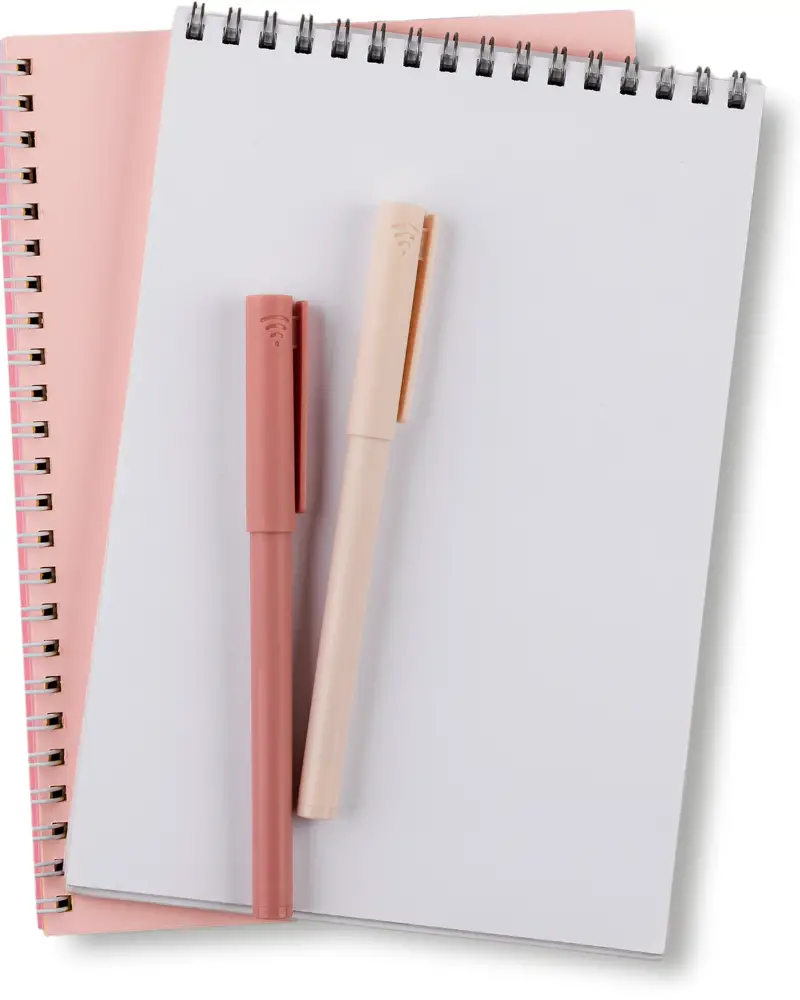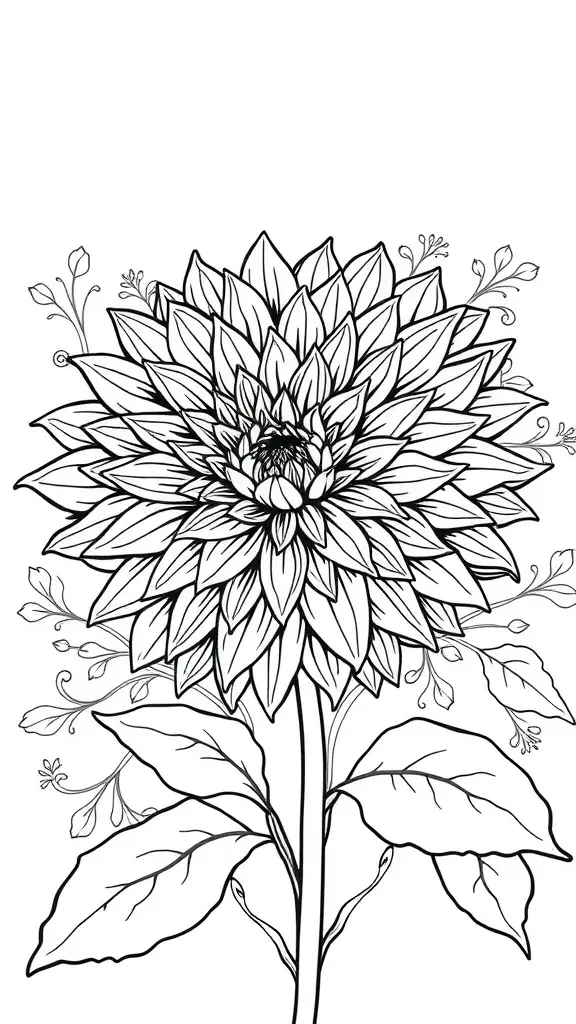65 Productive Ways To Use An Empty Notebook
If you have an empty notebook and just don’t know how to fill it out, and what to even do with it, here are 65 creative ways to fill it up!
I find myself perpetually surrounded by half-finished projects, toys that have seen better days, and notebooks. Oh, so many notebooks.
Each one was bought with the best of intentions, yet here they sit, gathering dust on my shelves, waiting for their moment to shine.
If you’re anything like me, you’ve probably got a stash of empty notebooks lying around too.
Here are some productive ways to finally put those notebooks to good use.
Let’s Put Those Empty Notebooks To Good Use – Productive Ways To Use An Empty Notebook
1. The Ultimate Planner
Let’s start with the obvious: planning. But we’re not talking about your run-of-the-mill daily planner. No, as a mom of three, I’ve elevated planning to an art form. Use one of your empty notebooks to create the ultimate planner. Include sections for daily tasks, weekly menus, family activities, and personal goals. This isn’t just about keeping track of soccer practices and ballet recitals; it’s about carving out time for your goals and dreams amidst the chaos of family life.
2. A Creative Outlet
Here’s where things get fun. Use your notebook as a creative outlet. This can be anything from sketching your kids’ funny antics, writing poetry about the joys (and trials) of motherhood, or even dabbling in short stories. Not only does this provide a much-needed break from the daily grind, but you might just discover a hidden talent or two along the way.
3. Learning Journals
As moms, we’re always looking for ways to encourage learning in our kids. Why not lead by example? Use a notebook as a learning journal for yourself. Pick a topic you’re interested in—whether it’s a new language, gardening, or even understanding the stock market—and dedicate a few minutes each day to jotting down what you’ve learned. It’s a great way to model lifelong learning for your children.
4. Memory Keeping
In the whirlwind of parenthood, it’s easy to forget the small moments that make up our days. Use one of your notebooks as a memory keeper. This can be as simple as jotting down funny things your kids say, milestones, or even pasting in photos or drawings. Years from now, flipping through this notebook will be like opening a treasure chest of family memories.
5. Goal Setting & Habit Tracking
Here’s where we get serious about personal development. Use a notebook to set goals for yourself and track your progress. This can be anything from fitness goals, reading more books, or even cutting down on social media time. By tracking your habits, you’re more likely to stick to them and see real progress.
6. The Master List Maker
Lists, lists, and more lists. As a mom, lists are practically my love language. Use a notebook to keep all your lists in one place. This can be anything from grocery lists, books you want to read, places you want to visit, or even a list of movies you want to watch. Having everything in one place makes it easier to stay organized and ensures you never forget anything.
7. Gratitude Journal
In the hustle and bustle of daily life, it’s easy to lose sight of the little things that bring us joy. Use a notebook to start a gratitude journal. Each night, jot down three things you’re grateful for. It’s a simple practice, but it can have a profound impact on your outlook on life.
8. Brain Dump Notebook
Sometimes, our brains feel like they’re on overload. Use one of your notebooks as a “brain dump” where you can jot down anything and everything that’s on your mind. This can be a great way to declutter your thoughts, reduce stress, and even improve your sleep.
9. Travel Journal
For those rare moments when you can sneak away on a family vacation or a much-needed momcation, use a notebook as a travel journal. Document your adventures, paste in tickets or postcards, and jot down your thoughts and experiences. It’s a wonderful way to preserve your travel memories.
10. Reflection Journal
Last but not least, use a notebook for reflection. This can be a space for introspection, where you reflect on your growth, challenges you’ve overcome, and lessons learned along the way. It’s a powerful tool for personal development and a reminder of how far you’ve come.
11. Dream Diary
Keep a notebook by your bed and use it to record your dreams as soon as you wake up. Not only is this a fascinating way to delve into your subconscious, but it can also be a source of inspiration for creative projects. Over time, you might start to notice patterns or recurring themes that could be interesting to explore further.
12. Recipe Collection
Turn one of your notebooks into a personalized recipe collection. Write down family recipes, experimentations that turned out well, or even recipes you want to try. You can also make notes on adjustments you’ve made or would like to make, turning your notebook into a culinary heirloom.
13. Self-Care Journal
Dedicate a notebook to tracking your self-care routines and reflections on activities that make you feel replenished and balanced. Include plans for future self-care, ideas for nurturing activities, and reflections on what works best for you.
14. Language Learning Companion
Use a notebook to support your language learning journey. Dedicate sections to vocabulary, grammar rules, practice exercises, or daily entries in the language you’re learning. It’s a practical tool that helps reinforce new language skills.
15. Fitness and Wellness Tracker
Create a dedicated space to track your fitness routines, dietary habits, water intake, and overall wellness. Note your workouts, meals, mood, and energy levels to find patterns and improve your health.
16. Art Journal
Combine your love for art with journaling by creating an art journal. Use it to experiment with different mediums, practice sketches, or collage. It’s a wonderful way to express yourself and document your artistic journey.
17. Professional Development Log
Keep track of your career goals, achievements, and reflections in a dedicated notebook. Use it to jot down insights from professional readings, feedback from colleagues or mentors, and ideas for future projects or improvements.
18. Time Capsule Notebook
Create a time capsule within a notebook by writing down current events, personal milestones, and daily life details. Set a date in the future to reopen it, and you’ll have a snapshot of this period in your life to look back on.
19. Inspirational Quotes Journal
Whenever you come across a quote that moves you, write it down in this notebook. Over time, you’ll compile a personal collection of wisdom and inspiration that you can turn to whenever you need a motivational boost.
20. Mindfulness and Meditation Journal
Use a notebook to reflect on your mindfulness and meditation practices. Record your experiences, thoughts, and feelings during and after each session to deepen your practice and understand your inner landscape better.
21. Personal Finance Tracker
Create a dedicated space to manage your personal finances, including budgets, savings goals, expense tracking, and investment notes. It’s a practical way to visualize your financial health and plan for the future.
22. DIY Project Planner
Use a notebook to plan and track your DIY projects. Include materials lists, step-by-step instructions, timelines, and space for sketching designs or layouts. It’s perfect for organizing home improvement or crafting projects.
23. Plant Care Journal
If you love gardening or caring for houseplants, dedicate a notebook to tracking your plant care routines, growth observations, and any issues or solutions you discover. It can become a valuable resource for your green thumb.
24. Book Club Notes
If you’re part of a book club or just love to read, use a notebook to jot down thoughts, themes, and questions about the books you’re reading. It’s a great way to deepen your understanding and enhance discussions.
25. Event Planning Organizer
Whether planning a big family gathering, a friend’s baby shower, or a community event, use a notebook to keep track of ideas, schedules, guest lists, budgets, and to-do lists to stay organized and ensure everything goes smoothly.
26. Tech Tinkering Log
For those who love to experiment with new technology, coding projects, or electronics, a notebook can be used to log your ideas, project steps, code snippets, and outcomes. It’s a handy reference for troubleshooting or future projects.
27. Poetry Collection
Dedicate a notebook to writing, collecting, and reflecting on poetry that you love or have written. It can serve as a personal anthology that inspires and comforts you.
28. Educational Webinar Notes
Use a notebook to take detailed notes during webinars, online courses, or educational podcasts you attend. It can help reinforce learning and serve as a quick reference for key insights and ideas.
29. Random Acts of Kindness Journal
Keep a record of kind acts you’ve done or witnessed, how you felt, and the reactions of others. This journal can be a powerful reminder of the impact of kindness and encourage you to seek out opportunities to make a difference.

30. Skill Mastery Log
Choose a new skill you want to master, and use a notebook to document your journey. This can include practice schedules, progress notes, challenges, successes, and reflections on what you’re learning.
21. Project Idea Bank
Use a notebook to jot down all your brilliant ideas and inspirations for future projects, whether they be DIY crafts, home improvement plans, or new business ventures. It’s a great way to ensure you never lose a flash of inspiration.
22. Positivity Journal
Dedicate this notebook to only positive thoughts and experiences. Write about things that made you happy, achievements, and moments of gratitude. It can be a powerful tool to uplift your mood on a down day.
23. Budget Tracker
Create a detailed budget tracker to manage your finances better. Use it to note your expenses, savings goals, and financial planning. This hands-on approach can make managing money more tangible and less daunting.
24. Reading Companion
Dedicate a notebook to your reading adventures. Track the books you’ve read, jot down thoughts, favorite quotes, or characters, and list books you intend to read. It can serve as a personal reading journal that enriches your reading experience.
25. Nature Journal
Keep a record of your encounters with nature. Note the different plants, birds, and animals you see, sketch landscapes, or press leaves and flowers. It’s a beautiful way to connect with the natural world and observe the changing seasons.
26. Daily Affirmations
Use a notebook to write down daily affirmations. Focusing on positive and empowering statements can help build self-confidence and foster a positive mindset.
27. Skill Development Tracker
Dedicate a notebook to track your progress in a specific skill you’re trying to improve, such as drawing, cooking, or playing an instrument. Note practice times, progress made, areas for improvement, and inspirations.
28. Event Planning Organizer
Organize your event planning, from parties and dinners to larger gatherings. Track your to-do lists, guest lists, menu planning, and decorations. It’s a great way to keep all your ideas and plans in one place, making event planning more enjoyable.
29. Personalized Address Book
Create a personalized address book where you can keep track of important contacts, birthdays, and anniversaries. It’s not just practical but can also be a meaningful way to maintain connections with friends and family.
30. Idea Incubator
Use a notebook as an “idea incubator” for your most out-there, wild, or creative ideas. This is a judgment-free zone to brainstorm and explore concepts without the pressure of them needing to be practical or immediately actionable.
31. World-Building Workbook for Writers
If you enjoy writing fiction, use a notebook to develop the world your stories take place in. Detail the setting, cultures, languages, and histories that make up your fictional universe, providing a rich backdrop for your narratives.
32. Personal Style Diary
Keep track of your fashion preferences, outfits, and wishlist items. You can also paste in images from magazines for inspiration, note what works for your body type, and plan future purchases.
33. Tech Exploration Log
Dedicate a notebook to exploring new technologies, apps, or gadgets. Write down your experiences, reviews, and how these technologies impact your daily life or productivity.
34. Life Milestones Album
Use a notebook to document significant life milestones and achievements. This can include graduations, career advancements, personal successes, and memorable trips. Add photos, tickets, and other mementos to make it more personal.
35. Reader’s Digest
Create your own reader’s digest by writing summaries, reflections, and critiques of the books you read. This can serve as a personal library catalog and help reinforce your memories and interpretations of the texts.
36. Skill Mastery Tracker
Choose a new skill you want to master and use the notebook to track your progress. This can include practice schedules, progress notes, challenges faced, and achievements along the way.
37. DIY Project Journal
Document your DIY projects, from crafting to home repairs. Include materials used, steps taken, lessons learned, and before/after photos. This can serve as a reference for future projects or to share your experiences with others.
38. Professional Networking Log
Maintain a record of your professional networking efforts, including contact information, where you met, key details about the person, and follow-up actions. This can be invaluable for developing and maintaining professional relationships.
39. Inspirational People Profile
Create profiles for people who inspire you, whether they are historical figures, celebrities, or personal acquaintances. Note their achievements, qualities you admire, and how they’ve influenced you.
40. Personal Branding Workbook
Use a notebook to develop your personal brand, whether for career advancement or personal projects. Include your values, strengths, elevator pitch, visual identity elements, and strategies for promoting yourself.
Related posts you will like
- How To Start A Journal and Make Life Better
- 40 New Month Journal Prompts
- Productivity Affirmations You Need In Your Life







